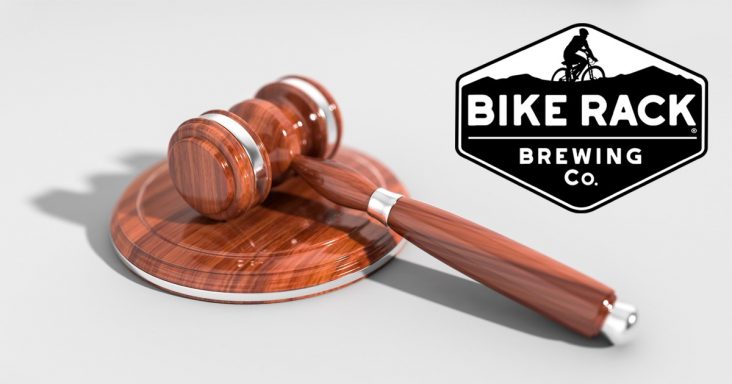Bike Rack Brewing Co. sued by co-founder for $2 million
by September 17, 2018 3:53 pm 7,863 views

A lawsuit filed in Benton County Circuit Court has exposed internal strife among the owners of a popular Bentonville brewery.
On Friday (Sept. 14), Steven Outain, a co-owner of Bike Rack Brewing Co. and its chief development officer, filed a lawsuit against the other co-owners as well as the company, alleging breach of fiduciary duty and disregard of the company’s operating agreement.
Outain is seeking $2 million in punitive damages. Individuals listed as defendants are Bike Rack’s other co-owners — CEO Jeff Charlson (45% ownership), Andy Neilsen (14%), Joey Lange (9%), Jeff Amerine (5%), Phyl Amerine (5%) and Ricky Draehn (5%).
According to the filing, Outain has been the company’s chief development officer since Bike Rack opened its first store in October 2014. Bike Rack now has Bentonville locations at 410 S.W. A St. and its main brewery and tasting room that opened last year in the 8th Street Market culinary hub. A third location opened this year in downtown Springdale at 205 E. Johnson Ave., two blocks east of the Razorback Regional Greenway. Bike Rack also recently established its own record label.
Outain, who is a senior manager at Walmart Inc., said he’s never taken compensation from Bike Rack, which had sales of more than $800,000 in the most recent fiscal year, according to the filing. Instead, Outain believed he would eventually see a return on his investment of “time and money” as the company became profitable, resulting in an increased value of his ownership interest.
The relationship between Outain and several of Bike Rack’s co-owners started to decline in January this year when the defendants, according to the filing, “began making unfounded claims against Outain, threatening him with lawsuits and demanding that he ‘voluntarily relinquish’ his ownership interest in [Bike Rack], refrain from having future contact with [Bike Rack] employees and never again enter a location owned or operated by [Bike Rack].”
Those demands started, according to the lawsuit, after other Bike Rack co-owners claimed Outain breached his fiduciary duty by helping in the evaluation of a brewery business to be opened by another company in Fort Smith.
Outain called the claim “completely false” in the filing. He also said one of the defendants also participated in the Fort Smith evaluation but wasn’t subjected to the same “demands and threats” as Outain.
The lawsuit said the defendants backed off their insistence that Outain give up his ownership stake in the business after Outain referenced the company’s third amended operating agreement, dated December 2017, which said “[any] Member . . . may engage in or possess an interest in other business ventures of any nature or description, independently or with others, whether such ventures are competitive with the Company or otherwise, and the pursuit of such ventures shall not be wrongful or improper…”
The defendants’ reaction to that, according to the lawsuit, was an offer to Outain of $33,500 to buy out his ownership interest. Outain rejected that offer on March 30, and requested access to the company’s financial records so he could “properly” determine what his ownership stake was worth.
An independent review of the business by a local CPA that was concluded in August said Bike Rack was worth just $105,900, and that Outain’s 17% ownership stake amounted to $18,003.
Outain also rejected that offer, claiming the appraiser’s report was “riddled with references to conversations with, and false representations by, the defendants about the current operations, future business plans and production capacity of the [Bike Rack]” in order to suppress the value of the company.
Outain’s lawsuit was filed by Rogers attorney Marshall Ney with Friday, Eldridge & Clark.
“As you can tell from the narrative in the lawsuit, internal strife has developed among the ownership group,” Ney wrote in a statement provided to the Northwest Arkansas Business Journal. “Steve is willing to walk away from the business he helped to create, but only if he receives fair market value for his 17% ownership. The other owners claim for purposes of redeeming Steve’s interests that the company is virtually worthless. That’s not the position the company takes publicly, though, nor does Steve believe the company will continue to claim financial woes after he has been redeemed.”
Little Rock attorney Jamie Fugitt with PPGMR Law is representing the defendants. Fugitt has not responded to the Business Journal’s request for a comment. This story will be updated when and if he responds.
